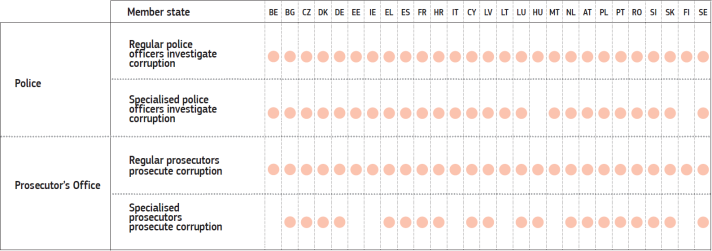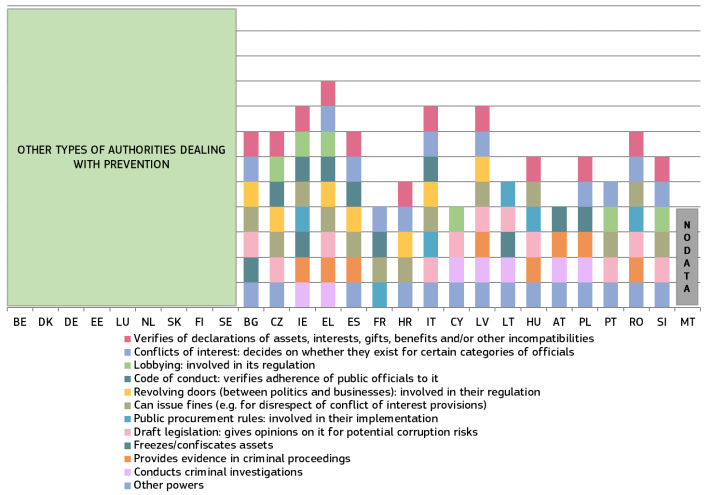
On 8 June 2023, the Commission published the 2023 EU Justice Scoreboard. The Scoreboard gives an annual overview of the efficiency, quality and independence of the Member States’ justice systems by providing objective, reliable and comparable data. This tool makes it easier to identify best practices and keep track of challenges and progress made.
For the first time ever, the EU Justice Scoreboard includes anti-corruption data. As a result of the answers that the Member States provided to a specific questionnaire, the 2023 EU Justice Scoreboard includes an overview of the length of legal proceedings on bribery and describes powers of bodies specialised in the prevention and repression of corruption.
The figure on top of the page shows that the average length of court cases on bribery until the first instance judgment differs from 100 days to 1400 days among Member States.
Corruption offences are a difficult category of crime to identify and investigate, as they mostly occur as part of a conspiracy between two or more willing parties and lack an immediate and obvious victim who could complain. Thus, a significant proportion of corruption crime remains undetected, and investigations and prosecutions can take a long time. To ensure that the competent authorities have sufficient time to conduct complex investigations and prosecutions, this recently adopted proposal for a Directive on combating corruption provides for a minimum limitation period that enables the detection, investigation, prosecution and judicial decision of corruption offences for a sufficient period of time after the commission of such offences.
Specialised bodies in the prevention and repression against corruption bring the necessary expertise to combat corruption. To ensure that they can fulfil their mandate adequately, the Commission proposes that they are functionally independent from the government and have a sufficient number of qualified staff and the financial, technical and technological resources, as well as the powers and tools necessary to ensure the proper administration of their tasks. The proposal for a Directive will now be discussed by the European Parliament and the Member States. The Commission hopes that an agreement on this important file will soon be reached.
Figure 60 of the 2023 EU Justice Scoreboard shows that all but two Member States also have in place some form of a specialised police to investigate specific corruption cases, for instance when they are more serious, complex or relating to a certain category of suspects.
Figure 58 of the 2023 EU Justice Scoreboard gives an overview of the powers of preventive bodies and shows that there is a huge variety between national bodies. While many Member States have multiple bodies with each their own competences, other Member States have a single body with more comprehensive powers. Their powers may vary from control of asset declarations, interests, or gifts to being involved in lobbying regulation or revolving doors. Figure 59 details the rules of appointment and dismissal for the heads of preventive bodies, which is an indication of their independence.
More information
Details
- Publication date
- 8 June 2023
- Author
- Directorate-General for Migration and Home Affairs


